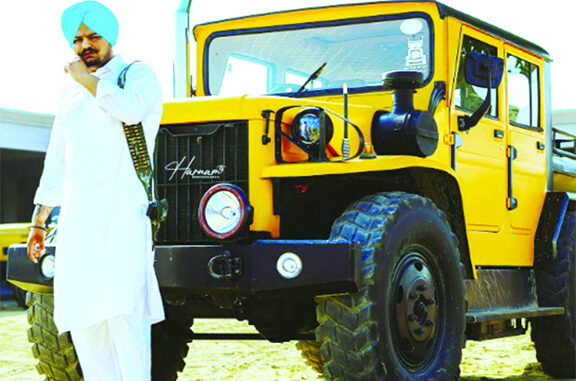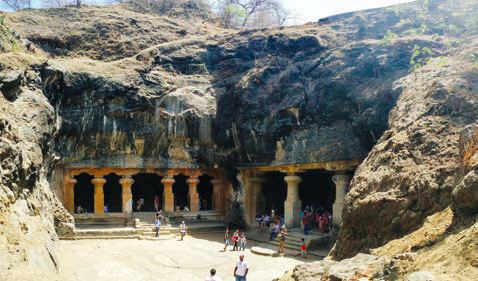
Ni ehda uthuga jawani ch janaja mithiye (The funeral will happen in youth). This is a line from Indian rapper Sidhu Moose Wala’s latest track, The Last Ride. The song, which was released in May – and has gathered over 10 million views on YouTube since – features the iconic crime scene where American rapper Tupac Shakur was murdered in his BMW in 1996.
“Many hated him, and many died wanting him… everything is revealed in the eyes of the young boy,” Moose Wala cackles in the music video, which is shot in slick monochrome tones.
On Sunday, in an ominous turn of events, Moose Wala met the same fate. The 28-year-old singer was shot dead by unidentified attackers in Punjab’s Mansa district, not too far from his home on Sunday, May 29, evening. The incident came a day after the AAP government in Punjab pruned his security.
The killing has triggered huge row and protests, with the Congress – the political party to which he belonged – calling for the dismissal of the ruling AAP government. His family has sought an investigation by a central probe agency.
For Moose Wala’s millions of fans though, the tragedy is deeply personal.
In a career spanning just four years, the 28-year-old rapper had become one of the most ubiquitous faces of Punjab’s fertile hip-hop scene. His voice blares from DJ turntables at Delhi’s flamboyant parties, rickety stereos at tea stalls in rural India and – as a colleague from BBC Punjabi told me – every possible radio channel in Punjab.
And he made it big in every sense. His songs, which he wrote and composed, racked up more than 5bn views, made it to the Top 5 in the UK charts last year, and he was also featured among the best new artists of 2020 in The Guardian. He had millions of fans around the world, especially in Canada and the UK which have a sizeable diaspora population.
Born as Subhdeep Singh Sidhu in Moosa village in Mansa district, the singer studied engineering from Punjab and moved to Canada in 2016. The next year, he released his first track “So High” under the name Moose Wala – a tribute to his village.
Since then, he had released three albums and more than 60 singles – at one time, the legend goes, he was churning out a song a week – and became a household name in Punjab and among Sikhs living abroad.
Drawing heavily from the genre of gangster rap, his music was a jumble of gritty opulence – measured in guns and fancy sports cars – as he made sense of life around him. His songs offered unvarnished commentary on the dark underbelly of the rural heartland, where drugs, crime and corruption often make headlines.
But Moose Wala was as controversial as popular. Since news of his death broke on Sunday evening, heaps have been said and written about the singer’s legacy.
The actor often ran into trouble with the law. In May 2020, he was booked for firing an AK-47 rifle at a shooting range during the Covid lockdown. He also had a police case against him for allegedly promoting violence and gun culture through his song, Sanju. And a cursory glance at his Instagram profile would reveal his affinity for the weapon.
The singer was never convicted for any of the alleged crimes, but critics have routinely called him out for normalising violence.
Fans say that Moose Wala was merely confronting the dark truths about modern life and holding up a mirror to society. “He was just making sense of the chaos, whether it was corruption, violence or the gun problem in Punjab,” one fan said. “And that contribution in itself is valuable.”
Moose Wala’s music has meant different things to different people. Some say they admired him for the “courage and I-don’t-care attitude” that was evident in his songs. Others liked the way he added English words to his Punjabi songs, which gave it a contemporary sheen.
For Moose Wala, though, everything was a deeply personal journey of self-expression. In 2021, he decided to give politics a chance. Although he lost the Punjab assembly election earlier this year, it didn’t tarnish his popularity or his reputation as a man of the soil.
Five songs that launched Moose Wala to superstardom
Sidhu Moose Wala began his singing career with a duet titled G Wagon. He also collaborated with Brown Boyz on several songs. The singer-rapper gained popularity with his track So High (2017). In 2018, he released his debut album PBX 1, which ranked 66th on the Billboard Canadian Albums chart.
The singer released a song titled The Last Ride on May 15. The song, which was shared on his official YouTube channel, has already close to 10 million views.
– So High is one of the most loved songs of Sidhu Moose Wala. The song is almost four-minutes-long and became popular with the masses. The song has over 481 million views on YouTube.
– Same beef is a part of an album of the same name, released in 2019. Composed by Byg Byrd, the song was sung by Bohemia and Sidhu. It has over 394 million views on YouTube.
– Just Listen was written by Sidhu Moose Wala and released in January 2018. It has over 144 million views on YouTube.
– Famous released in 2018 and is from the album PBX1. It was produced by Pyg Brd.
– Badfella was released under T-series and was produced by Harj Nagra. On YouTube, the song has over 91 million views.
Source: BBC ans HT





Be the first to comment